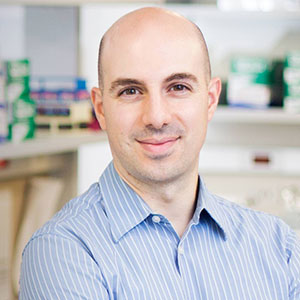
PhD Program Oversight
The PhD program is overseen by three faculty co-directors, who work closely with the Associate Dean for Research Training & Communications and the Vilcek administration.

E. Jane Albert Hubbard, PhD
Director of Academic Development
Dr. Hubbard oversees academic development of students in Vilcek Institute of Graduate Biomedical Sciences, ensuring that our students receive outstanding training and support throughout their PhD experience. This includes assisting students in finding thesis mentors, in tracking degree progress, and in development as a professional scientist. She is also a professor in NYU Langone’s Departments of Cell Biology and Pathology. Contact her at Jane.Hubbard@NYULangone.org. Learn more about Dr. Hubbard.

Amanda W. Lund, PhD
Director of Curriculum
Dr. Lund directs the curriculum for Vilcek Institute of Graduate Biomedical Sciences, where she is responsible for administering the core curriculum and overseeing training across all our training programs. Dr. Lund is also an associate professor in the Department of Pathology and the Ronald O. Perelman Department of Dermatology at NYU Langone, where her lab is focused on understanding the immunological implications of lymphatic transport in skin and melanoma. Contact her at Amanda.Lund@NYULangone.org. Learn more about Dr. Lund.

Richard L. Possemato, PhD
Director of Admissions
Dr. Possemato leads recruitment and admissions efforts for Vilcek Institute of Graduate Biomedical Sciences. He is also an associate professor in NYU Langone’s Department of Pathology and the co-leader of the Cancer Cell Biology Program at Perlmutter Cancer Center, where he runs a basic science research laboratory studying the altered metabolism of tumors. Contact him at Richard.Possemato@NYULangone.org. Learn more about Dr. Possemato.
Vilcek Leadership Advisory Council (V-LAC)
The Vilcek PhD Leadership Advisory Council serves as an intermediary between the Vilcek PhD leadership and the faculty. The representatives on this council help to implement curriculum governance, set program-wide policies, and coordinate recruitment and admissions, as examples.
The V-LAC includes:
Steven H. Baete, PhD
Yu Chen, MPH, PhD
Andrew J. Darwin, PhD
David Fenyo, PhD
Niels Ringstad, PhD
Susan L. Smith, PhD
Vilcek Pre-Candidacy Advisors (V-PCAs)
Each PhD student has a designated Vilcek Pre-Candidacy Advisor (V-PCA), who will guide you until you have passed your qualifying exam and are officially a PhD candidate. The V-PCA will help their mentees navigate lab rotation, select coursework, adjust to their thesis lab, as examples.
For the 2025-2026 academic year, the V-PCAs include:
Bennett Allen, PhD
David B. Beck, MD, PhD
Ivan L. Diaz, PhD
Molly C. Gale Hammell, PhD
Michelle Krogsgaard, PhD
Riccardo Lattanzi, PhD
Sahnah Lim, MPH, PhD
Mengling Liu, PhD
Thales Y. Papagiannakopoulos, PhD
Hyung Don Ryoo, PhD
Susan R. Schwab, PhD
Alexander A. Serganov, PhD
David L. Stokes, PhD
Jesus Torres Vazquez, PhD
Jessica E Treisman, PhD
Elaine L. Wilson, PhD